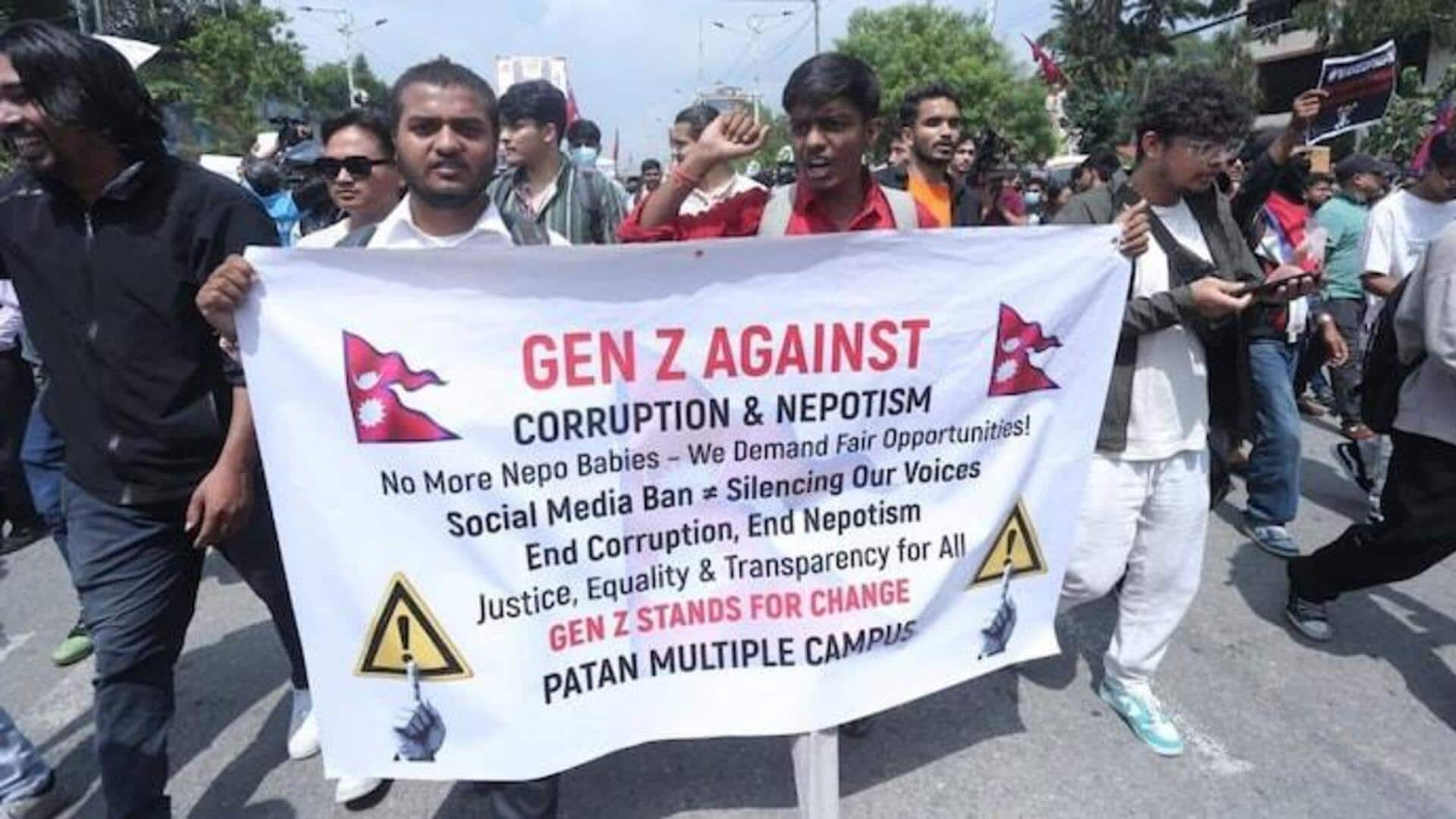
Nepal home minister resigns after Gen-Z protests leave 19 dead
What's the story
Nepal's Home Minister Ramesh Lal Lekhak has resigned after violent protests in Kathmandu over a government ban on major social media platforms turned deadly, claiming 19 lives and leaving over 345 injured. Lekhak submitted his resignation to Prime Minister KP Sharma Oli, citing moral responsibility for the loss of lives. "There was a huge loss of human lives...I have to take moral responsibility for that, and I will not sit in the post on moral grounds," Lekhak told OnlineKhabar.
Protest details
Protests against ban on social media
The protests were triggered after Nepal's government banned popular social media platforms such as Facebook, X (formerly Twitter), and YouTube. The ban came after the platforms failed to register under new state rules. Thousands of young people, mostly Gen Z, took to the streets in Kathmandu and other cities on Monday, demanding an end to the social media restrictions and widespread corruption in the country.
Government response
Protest turn violent, government imposes curfew
The protests turned violent as demonstrators clashed with security forces, leading to use of water cannons, tear gas, and rubber bullets by police. Protesters also set motorcycles on fire and stormed barricades near the parliament. The government has since imposed a day-long curfew in parts of Kathmandu and deployed the army. Meanwhile, discussions are underway to reconsider the decision. Government spokesperson Prithvi Subba Gurung said if government policies need to be reconsidered for people's safety, they should not remain steadfast.
Ban details
Nepal government bans access to social media platforms
The demonstration was sparked by a September 4 decision of the government to block 26 social media platforms, including Facebook, Twitter, WhatsApp, and YouTube, for not registering with the Ministry of Communications and Information Technology. The ministry said it had given the companies seven days to register following a court ruling, but all missed the deadline. Only five companies, including TikTok, complied with the order and were not banned.